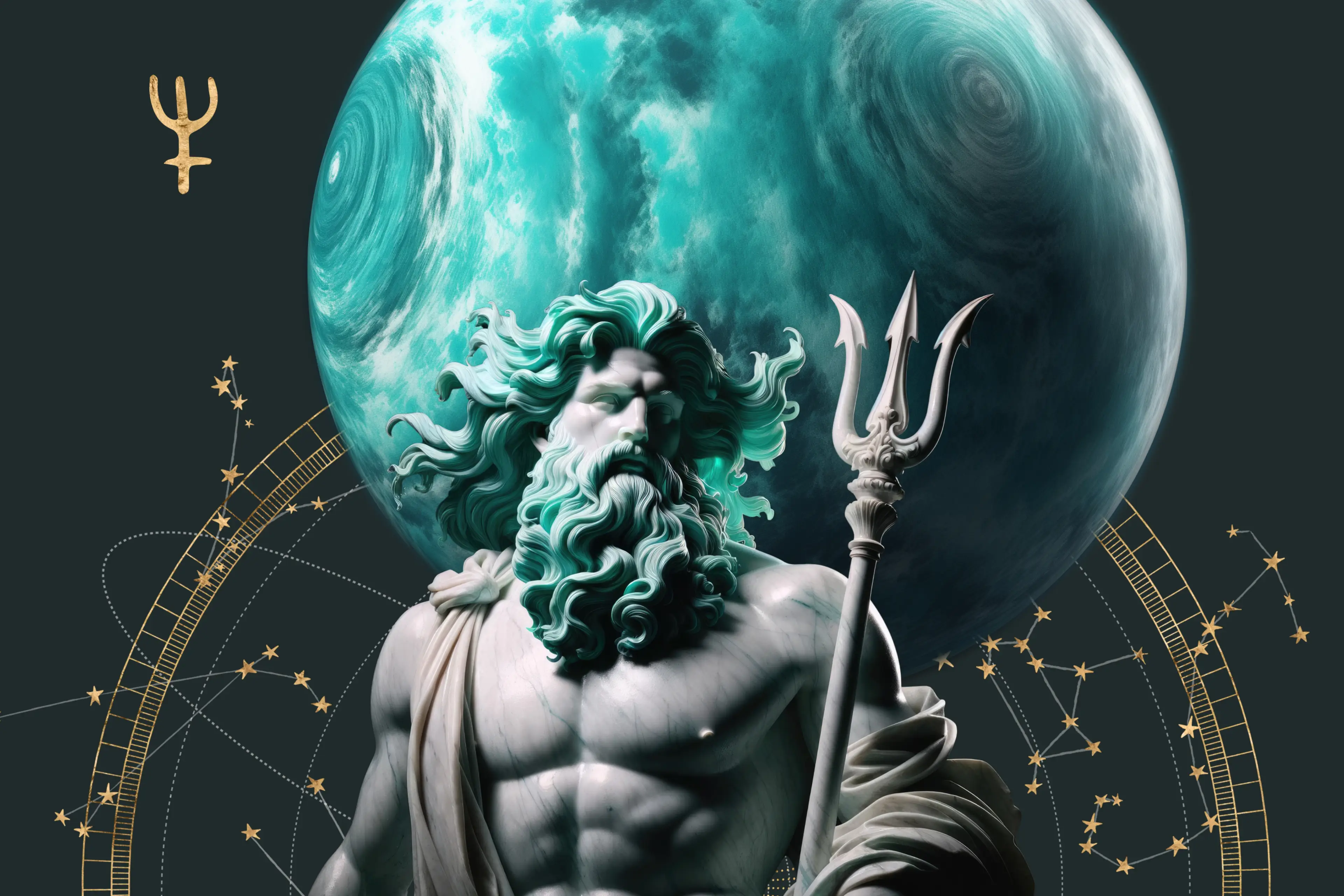Neptune represents our desire to transcend mundane reality and connect with a higher source of meaning, either through art, imagination, or spiritual experience. It compels us to develop empathy and compassion for others and to seek unitive states of oneness.
In a horoscope or birth chart, outer planet Neptune represents how and where we access our imaginative and creative potential and the ways we seek to connect with the metaphysical, spiritual, or religious dimension of life. It also represents where we may be prone to not seeing things clearly.
Key Concepts
Neptune does not rule a zodiac sign, but it shares affinities with Pisces, as both are concerned with imagination, mysticism, and idealism.
Neptune is related to the Major Arcana tarot card The Hanged Man, which symbolizes the need to surrender control in order to potentiate a shift in perspective.
Astronomical Features
Neptune spends around 14 years in each zodiac sign.
Neptune cycles through the entire zodiac about once every 165 years.
Neptune retrogrades once every year, with each lasting around 5.5 months.
Neptune Symbolism and Meaning
Neptune, the second planet of the solar system to be observed with a telescope, was discovered in 1846 by Urban LeVerrier, who posited the existence of this planet based on the unexplained gravitational aberrations in the orbit of Uranus.
Neptune’s discovery (it was first sensed, rather than directly seen), as well as the cultural climate of the times (the rise of Spiritualism, recreational psychoactive drugs, and pharmaceuticals) are resonant with its symbolic meaning.
Neptune rules the transcendent, imaginative, spiritual, symbolic, and ideal dimensions of life, and it drives us to expand beyond concrete material and temporal reality. As the dissolver of boundaries, it can compel us to see the illusion in our feelings of separateness.
Neptune in Balance
With a balanced Neptune, one is driven to seek heightened experiences of beauty, connection, devotion, and compassion while maintaining a coherent sense of self and a sense of one’s boundaries.
Neptune in balance can manifest as the ability to be highly imaginative and artistic, empathetic to the struggles of others, connected to one’s own intuition and dreams, and to the desire for healing and wholeness through unitive experiences.
Neptune out of Balance
Neptune out of balance can manifest as a lack of personal boundaries and a propensity to become enmeshed in relationships, a susceptibility to illusion or deceit, and escapist tendencies that make it challenging to attend to the practicalities of everyday life.
Neptune out of balance can also show up as the tendency towards narcissism, delusion, and self-deception. Its foggy quality can create confusion, projection, and disorientation as a result of intoxication.
Psychological Aspects of Neptune
The psychological function of Neptune can be thought of as the desire to transcend or dissolve the ego and the accompanying feelings of separateness. It represents the impulse to seek meaning and connection beyond the limits of material and temporal reality and to find a sense of wholeness through merging and dissolving with others or with a higher source.
Neptune in Mythology
Neptune was named after the Roman god of the sea, which is resonant with its oceanic, dissolving, formless, and intangible qualities. Neptune, who wielded a trident, is also known in Greek mythology as Poseidon.
Qualities of Neptune can be seen in all deities of universal love and compassion, such as Christ and Buddha, as well as in mythological figures, such as Dionysus, Narcissus, Orpheus, and the Muses of ancient Greek lore.

